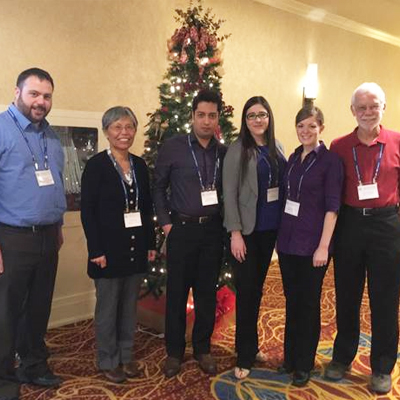All three winners are PhD candidates studying under NWMO-sponsored Industrial Research Chairs at Western University.
Shannon Hill won first prize for "The Corrosion Evolution on Carbon Steel Under Deep Geological Disposal Conditions for Spent Nuclear Fuel Waste." Her PhD supervisor, Prof. David Shoesmith, holds an Industrial Research Chair in Used Fuel Disposal Chemistry.
Thalia Standish won second prize for "Galvanic Corrosion of Copper-Coated Carbon Steel for Used Nuclear Fuel Containers." Her PhD supervisor is Professor Shoesmith.
Mojtaba Momeni won third prize for "Effects of pH and Radiation on Galvanic Corrosion of Stainless Steel-Carbon Steel Welds." His PhD supervisor is Prof. J. Clara Wren, who holds an Industrial Research Chair in Radiation-Induced Processes.
"The prize winners are a credit to the NWMO, Western University and UNENE," said Dr. Peter Keech, the NWMO's Manager of Engineered-Barrier Science. "Their success here also reflects the importance of their research, which is yielding valuable insights about how copper and steel might hold up over the lifetime of a deep geological repository."
UNENE is an alliance of universities, nuclear power utilities, and research and regulatory agencies for the support and development of nuclear education and research and development capabilities in Canadian universities. The NWMO became an associate member of UNENE in 2011.

